Impact of social media in today’s business world
The rise of social media has given customers unprecedented access to companies. This can be a double-edged sword: companies are able to communicate with customers in more ways than ever, but they need to be aware that communication is a two-way process.
Customer expectations have risen accordingly and they are willing to act against companies who don’t meet their expectations:
Social media impact on business – Failure
#1 – JP Morgan Q&A session on Twitter
In theory, this sounded like a great idea. Why not engage consumers via a Q&A session on Twitter? The problem is that people really aren’t that fond of major banks right now. So the enlightening Q&A with vice chairman James B. Lee Jr. from JP Morgan became an open invitation for people to vent their frustrations, which in turn, forced the session to be cancelled.
#2 – Expresses a personal tweet on the company’s home page
The Red Cross’s social media specialist Gloria Huang, by accident, expresses a personal tweet on the company’s home page. The Red Cross recovered nicely and only minimal damage was done. But, the fail was that their social media specialist had meant for that tweet to go out on her private account. But, she accidentally sent it on the Red Cross handle because she wasn’t familiar with HootSuite.
#3 – An update from an employee at the automaker’s social media agency
The official Twitter account of Chrysler brand vehicles dropped the F-bomb in an update from an employee at the automaker’s social media agency. Chrysler gained a lot of attention because of the following Tweet: “I find it ironic that Detroit is known as the #motorcity and yet no one here knows how to *bleeping* drive.” No. It wasn’t part of some edgy viral campaign. Just another Twitter fail that was the result of an employee from a social media agency in charge of a brand’s social media accounts.
#4 – How not to use hashtags to market products and services
Habitat, a UK home accessory and furniture retailer, was looking to gain more followers on Twitter, and who doesn’t? But, the approach that it took wasn’t the best tactic. Instead of relating its tweets to popular topics that were relevant to its field, it tried to take advantage of popular hashtags, such as #Apple and #iPhone. This is the perfect example of how not to use hashtags on Twitter.
#5 – Don’t piggy back ride on natural disaster
This should be common sense, but you probably should never ever use a devastating natural disaster as an opportunity to run a promotion. But, that’s what American Apparel did when the brand offered 20% off to anyone living in states that were affected by Hurricane Sandy.
#6 – Rogue employees took over the company’s Twitter account
When some 60 staff members are losing their jobs, it’s understandable for people to get upset. And, that’s what happened with UK entertainment retailer HMV after rogue employees took over the company’s Twitter account.
#7 – Better stick to corporate social media policies
CNN’s senior editor of Middle Eastern affairs, Octavia Nasr, was shown the door after sending a tweet that expressed respect for the Shiite cleric Grand Ayatollah Mohammed Hussein Fadlallah.
#8 – Be very sure who is tweeting on behalf of the company
The Vodafone Twitter account Tweeted this message: @VodafoneUK: is fed up of dirty homo’s and is going after beaver.
#9 – Use a the right image
American Apparel in social media storm as it mistakes Space Shuttle explosion for “clouds or fireworks”.
#10 – Think twice before making jokes on Twitter
Royal Dutch Airlines (KLM) came under fire over “offensive” tweet after Netherlands defeated Mexico at the FIFA World Cup in Brazil.
#11 – Don’t joke about something on Twitter, that should never been joked about
Don’t joke about something on Twitter, that should never been joked about. This can quickly lead to a Twitter nightmare.
#12 – Don’t capitalize on a tragic event to promote products
There are still companies that need to recognize that a social media presence is not a billboard.
#13 -Better think twice before posting an answers on Facebook
A century-old ice cream company in a small Montana (US) town came under “fire” after a social media failure.
#14 – Hashtag failure
Many companies have tried to promote their products on Twitter … and have ran into a problems.
#15 – A little comment can create a firestorm of unhappy customers
All it takes is one little comment gone wrong to upset a whole slew of your social media fan base and that’s exactly what happened on Nikon’s Facebook page.
#16 – Don’t SPAM
The Toyota account @CamryEffect was replying to users who used a Super Bowl related hashtag like #Giants or #Patriots with an offer to win a car.
Social media impact on business – Attack
The organization of the future will be more transparent than ever before. Firms will find it increasingly hard to hide poor service, high pricing or unpopular practices, as technology makes them more visible to end-consumers. Just as social media aided political protests around the world, so too will it allow consumers to put firms in the spotlight. In the austere decade that lies ahead, companies will need to behave better than ever, or risk a consumer backlash.
#17 – What happens if companies don’t listen to their customers
In a world where consumer and peer reviews are available via social media, positive customer experiences become amplified and produce word-of-mouth referrals. On the flip side, negative customer experiences become amplified as well and can make big damage to even great companies.
#18 – Companies that provide poor customer service can’t ride out the situation
Companies these days must understand that everybody has a voice. So the best way to avoid a public relations nightmare is to give great customer service.
#19 – Social media force transparency
It’s pretty amazing that social media can change the policies of a multi-billion dollar company overnight.
#20 – Raising fuel costs is an unpopular decision
Raising fuel costs is an unpopular decision at the best of times, but power company British Gas somehow managed to make things even worse.
#21 – Think twice before changing products
For nearly two centuries, Earl Grey has been the tea of genteel contentment. But as Twinings changed the flavor of the popular hot drink, its drinkers where rising in revolt against Twinings.
#22 – A new way to use social media to take on a big corporation
Fed up with the way British Airways was handling the issue of his father’s lost luggage, businessman Hasan Syed decided to complain about it on Twitter.
#23 – Online petition
Online petition against Bank of America and German Telekom.
#24 – Price increase lead to social media attack
Sony came under bushfire for raising prices on Houston’s music in the UK and Verizon Wireless canceled a planned $2 “convenience fee” for online and phone bill payments after a backlash from consumers.
#25 – What happens when the hashtag gets hijacked
McDonald’s launched a Twitter campaign using the hashtag #McDStories – it was hoping that the hashtag would inspire heart-warming stories about Happy Meals. Instead, it attracted snarky tweeps.
#26 – Leveraging social media to its great advantage
For an organization that has limited resources but depends so heavily on spreading its message, Greenpeace is leveraging social media to its great advantage.
#27 – Brands need to make sure all employees know the online consequences for their offline actions
Social media has given the customer the power to share their experience with people all over the country (and world).
#28 – Dealing with a crisis has totally changed
There is no brand immune to a negative event ……… but in terms of bad online sentiment, it didn’t get much worse than BP’s.
Short URL & title:
Top 20+ social media impact on business — https://www.torbenrick.eu/t/r/mqs
Share it:
If you enjoyed this article, please take 5 seconds to share it on your social network. Thanks!
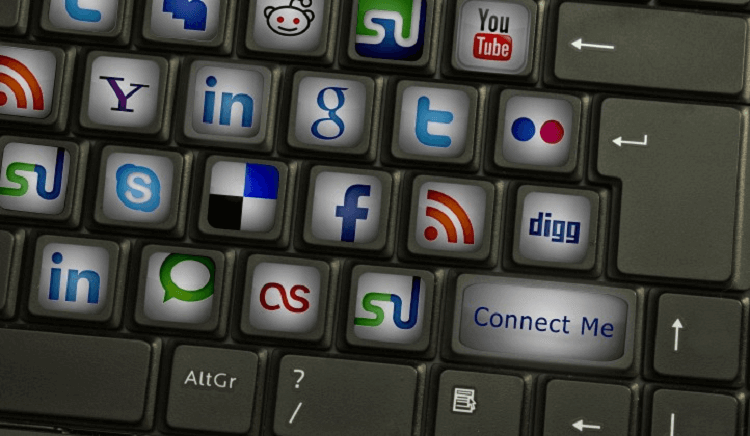
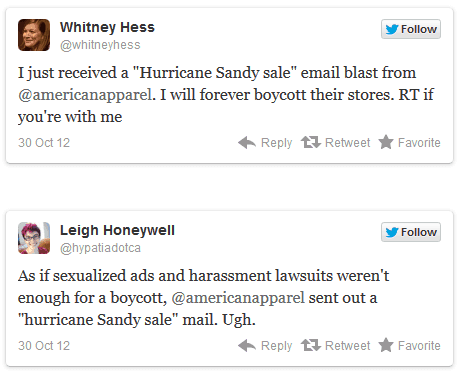
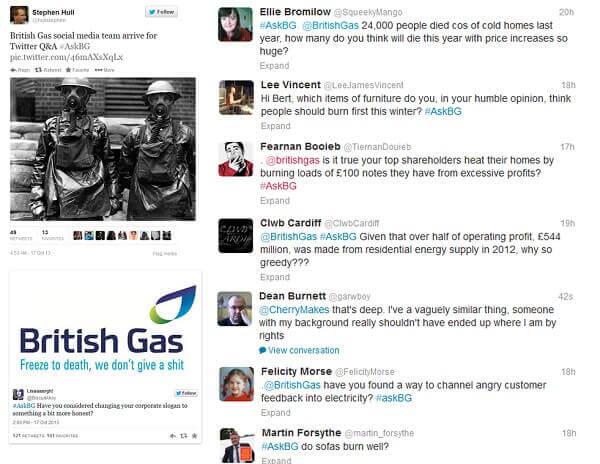
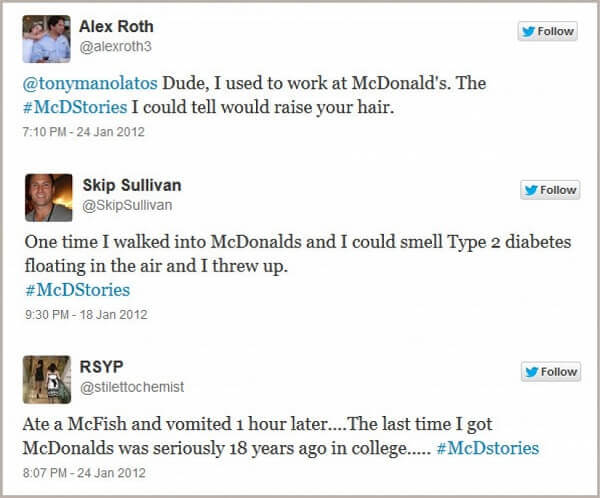

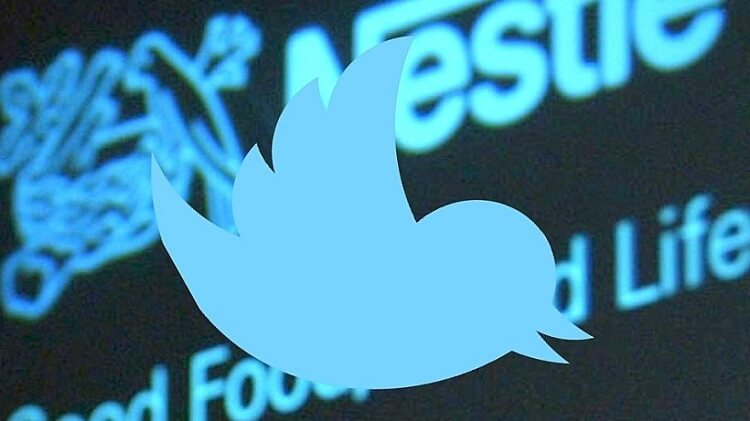



Social media is just like a weapon. If in the hands of someone not aware of its power, it may kill your authority, your name, your brand. Social media is not easy to control for the audience has a major part in it. I think it’s high time we started educating ourselves how to communicate better through these new channels.